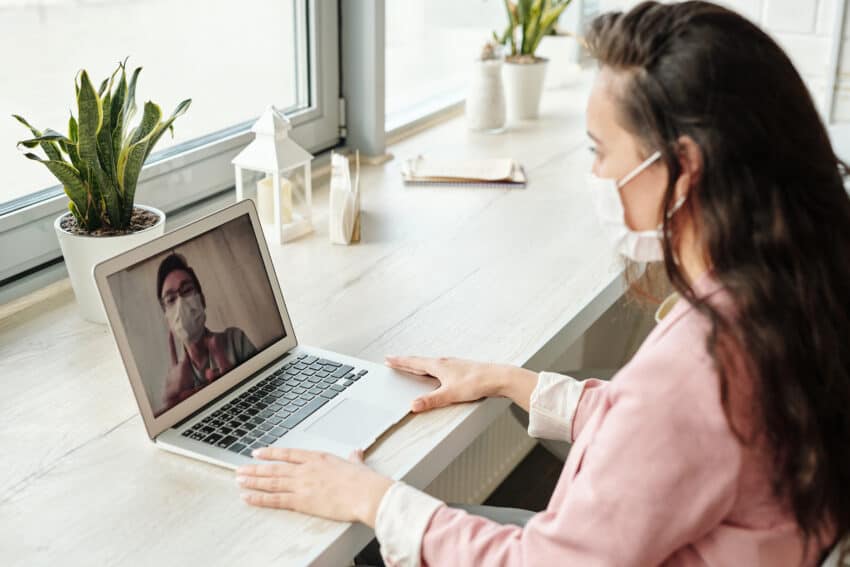Reports on patient embarrassment on MedicineNet show that people feel awkward even in the presence of health, wellness, or lifestyle professionals. This is especially the case for people dealing with more touchy or personal concerns like substance abuse, hair loss, sexually-transmitted diseases, and mental health. For those dealing with sensitive conditions, the need for help is trumped by embarrassment. Fortunately, there are methods to seek and enjoy professional help outside of more obvious or traditional means. Ranging from remote platforms to specialized communities, here are discreet yet effective ways to get help:

Find a specialist’s office
For starters, specialists have a deeper understanding of a range of concentrations which means they can get to the root of the issue faster with less invasive prying. For instance, in a guide to the certified trichologist profession by WebMD, it’s explained that these experts are highly trained in hair-related conditions that may often go misdiagnosed by others. This includes pattern baldness and excessive hair growth, both of which are conditions many feel insecure about. Aside from providing the benefit of their precise training, specialists also intimately understand the nature of the people they treat. As a result of this, their offices are usually more mindfully curated too. This includes having tactful staff, decorating in a way that underscores privacy, and offering resource materials that visitors can review.

Opt for telehealth solutions
For some people, though, even leaving to see specialists in person is too embarrassing or too inaccessible. Fortunately, for such cases, there are now many telehealth providers who cover specialized treatment areas. A post on remote nurse practitioner jobs on Wheel illustrates a growing demand for telehealth professionals with expertise in sensitive concerns including sex-related areas, such as birth control. Through purely virtual consultations, specialized professionals like physicians and the aforementioned nurse practitioners are able to assess and diagnose patients without ever having to see them in person. Not only is this more convenient, but it also lets the patient receive expert aid without having to leave the comfort of their own home. What’s more, since telehealth is done remotely, most specialist healthcare providers also follow a more flexible schedule which is also more convenient for busy patients.
Call dedicated hotlines
Sometimes sensitive conditions can also come in the form of mental health crises. Unfortunately, many people still feel ashamed to admit they have mental health problems, let alone ask for assistance. While this may work for a while, in the long run, it may only exacerbate potentially dangerous circumstances. To prevent falling into a darker spiral, those who are secretly dealing with mental health concerns can tap dedicated hotlines for help. According to the resources listed on MentalHealth.gov, some primary hotlines include 911, the National Suicide Prevention Lifeline, and SAMHSA’s Behavioral Health Treatment Services Locator. Manned by trained professionals, these hotlines can service anonymous callers free of charge. Depending on the specific mental health concern and state of mind you’re currently in, these hotlines can offer immediate help or proactive solutions. In some states, these hotlines are even manned by psychologists and psychiatrists who are able to give free phone-based counseling with no need for the caller’s identifying details.
Join a supportive community
A support system matters, even if you feel compelled to deal with your sensitive condition on your own. After all, sensitive conditions (regardless of whether they’re physical or mental) can be challenging, and thus hard to overcome alone. One way to have a private support system is by finding like-minded communities that have specific experiences in what you’re dealing with. This can come in the form of joining anonymous support groups or online communities. In these circles, the people you interact with have shared similar experiences that can be incredibly insightful and inspiring. Furthermore, since sensitive struggles can feel very isolating, socializing is a great way to keep you engaged and positive. In fact, this is why socialization is a key factor in our Dry 30 update. Since these communities also understand the value of privacy, there is often an understanding that nothing is ever publicly shared unless there is group consent. Thus, there is little chance of you being outted before you’re ready.
Though it’s natural to feel embarrassed about certain health- or lifestyle-related conditions, holding back from getting help only serves to prolong the issue. By finding the right means to get help for your specific needs as soon as possible, you’re tackling your worries head-on and forging a path to get better on your own terms.


